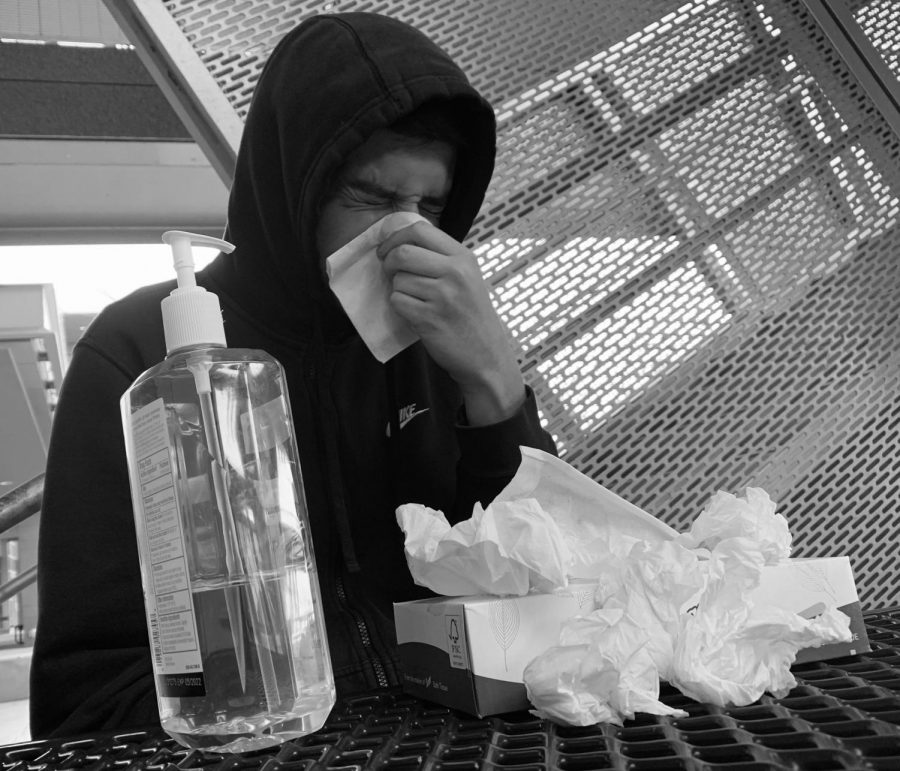Protect Your Health
The flu can be easy to catch when not staying clean. Make sure to bring tissues and always wash your hands.
February 13, 2020
It starts off as a headache. Your arms and legs feel sore as if someone had just pulled them. You start to warm up. Your head feels as if it was the center of the earth. Your nose starts to run. Your throat starts to feel itchy and dry. Finally, you start to cough. You among 19 million other people, have the flu.
It is 2020, a new decade, something people have been anxiously waiting for and it is finally here but what did it come with? The flu. Although the flu season comes along inevitably every year, this year, the flu season is in full swing. Every state in the country reported high flu activity. So far, 10,000 people have died and 180,000 people have been hospitalized this 2019-2020 flu season according to the Centers for Disease Control and Prevention.
Although many students at MACES believe the flu is a minor disease because of how common it is, based on a survey of students, other stumbling block diseases that come from the flu can be rather deadly. These diseases include: pneumonia, bronchitis, asthma flare-ups, ear infections, and heart problems.
MACES junior, Jimena Morales, had to undergo first hand experience of getting one of these deadly diseases, from what she believed to be “just the flu”. She stated in an interview, “ I thought it would just go away throughout the night. We went again to the doctors and they saw that I got worse, they made me do x-rays. They told me not to go to school because in my x-rays, they found pneumonia. What I thought was just the flu turned into something worse.”
Studies show that young children and elderly people are at higher risk of getting the flu, because of their weaker immune systems, but the common misconception is that only they can obtain these dangerous diseases. If Morales, a healthy 16-year-old girl can get the virus, anyone can. The virus does not discriminate, it can be spread to anyone.
MACES school nurse, Marina Adame, stated in her interview, “ Ever since we came back from winter break, there has been an insurgence of children coming in with the flu.” With MACES being a public school, the nurse agrees that students should be aware of the issue. Students should know ways to prevent it, for the safety of all students, faculty and other members who may be affected.
Although this year’s flu shot is not an exact match to the virus spreading, there are precautions people should take to protect their health. Ms. Adame stated, “ We can arm ourselves with knowledge and there are definitely ways to prevent it. So, I know that if I wash my hands frequently and I watch where my hands are, I am actually able to prevent it.” Students should watch where their hands go, constantly keep up with hand hygiene, and make sure to cough in forearm or the inside of the collared shirt.
To conclude, with the high reported activity of the disease, students should protect themselves and their health. They can physically protect themselves by keeping good hand hygiene and coughing into reasonable places. They can also protect themselves by knowing the signs and getting checked out by doctors as soon as the signs appear. Lastly, as the nurse suggested in her interview, students who have the flu or flu-like symptoms, especially fever, should stay home.



